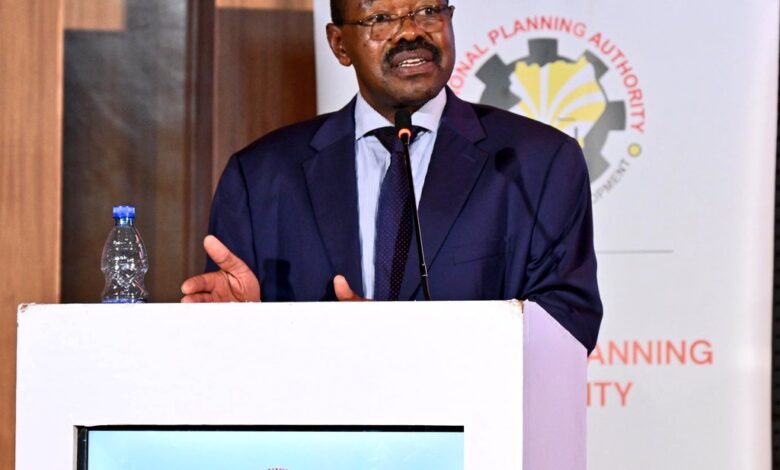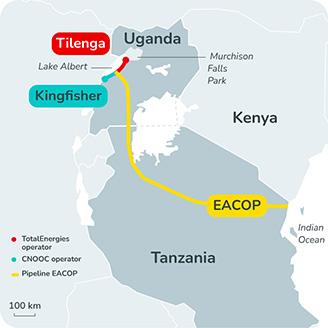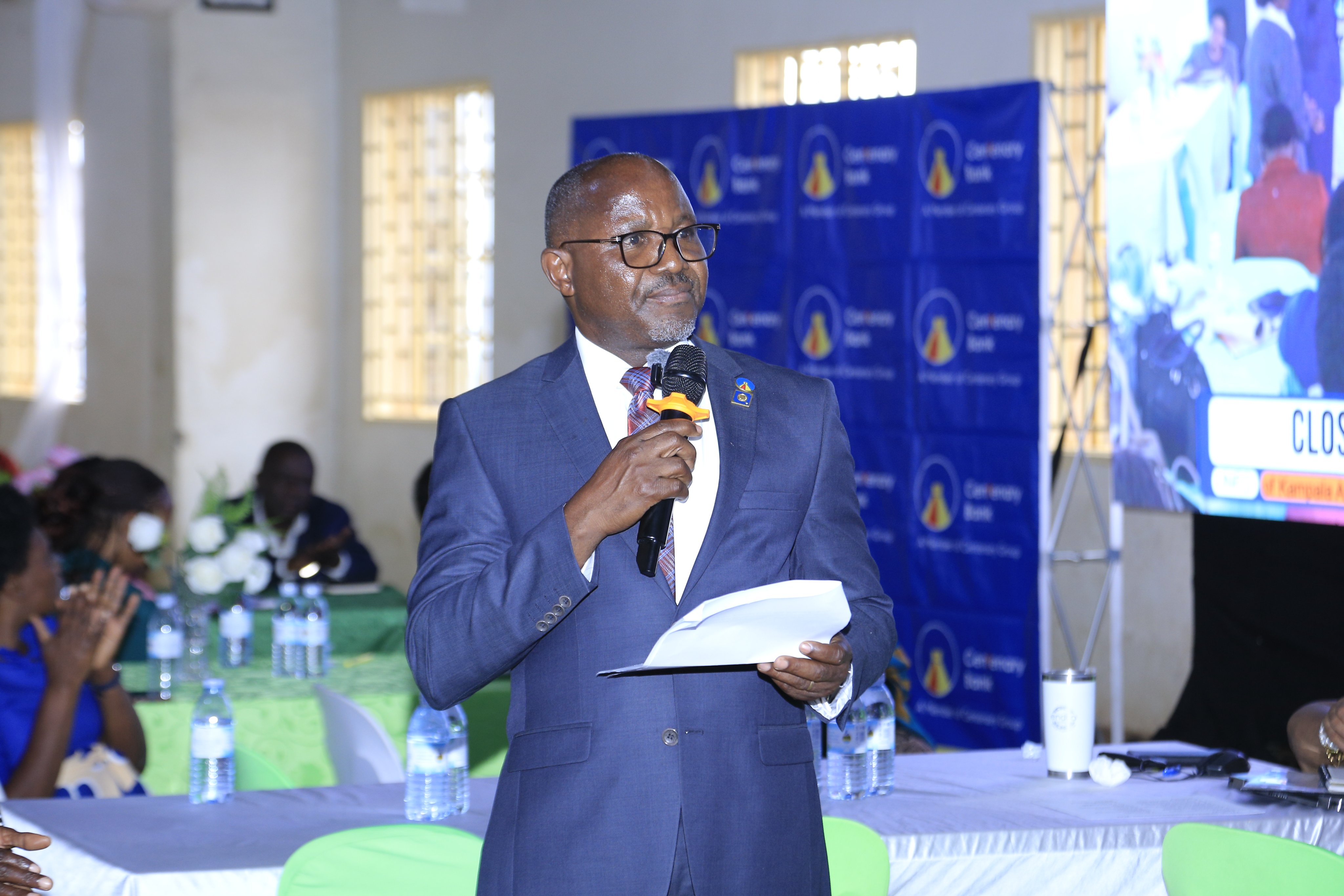NDP IV to grow Uganda’s economy from USD 49.5 billion to USD 500 billion in 15 years
The goal of the NDP IV is to achieve higher household incomes and employment for sustainable socio-economic transformation, under them; “Sustainable Industrialisation for Inclusive Growth, Employment and Wealth Creation.”

The Minister of State for Planning, Amos Lugolobi has revealed the National Development Plan IV (NDP IV) aims to grow Uganda’s economy, from USD 49.5 billion as of FY 2023/2024 to USD 500 billion in the next 15 years, in a transformative, inclusive and sustainable manner.
NPD IV is the fourth out of six National Development Plans (NDPs) designed to implement Uganda Vision 2040. It is also the last plan to deliver the Global Agenda 2030 of the Sustainable Development Goals (SDGs.
According to Lugolobi, this Strategic direction has been developed to exploit the available opportunities to fast-track the realization of the desired socio-economic transformation aspirations towards the achievement of the qualitative leap.
“The NDP IV Strategic Direction was discussed and approved by Cabinet in March this year (2024). The Strategic Direction speaks to His Excellency’s the President’s strategic guidance,” he said while speaking at the National Planning Conference on Wednesday, May 29, 2024.
He also noted that the Government’s focus is turning to creating wealth, jobs, and incomes, having now laid the foundation by building roads, hospitals, schools, water sources, and other public services.
“Particularly, it is in line with Value Addition; knowledge economy and STI; Investment in high-speed rail; maintenance of existing infrastructure; reduction in the cost of credit; PDM and EMYOOGA; revenue-generating interventions,” said Lugolobi.
The goal of the NDP IV is to achieve higher household incomes and employment for sustainable socio-economic transformation, under them; “Sustainable Industrialisation for Inclusive Growth, Employment and Wealth Creation.”
On his part, Ministry of Finance, Planning and Economic Development (MoFPED) Permanent Secretary Ramathan Ggoobi said the introduction of Indicative Planning Figures (IPFs) is a step towards ensuring that the limited resources of government are used efficiently, safeguarding ongoing commitments & strategically taking on new priorities in line with the 10-fold growth strategy.
He said critical projects such as the standard gauge railway (SGR) and Oil projects need to be carried forward in NDPIV.
The PSST called for a commitment to prudent and effective planning in this process of developing NDP IV, adding that there is a need to ensure that development plans are based on the availability of resources (aligning resources with revenue forecasts to maintain financial stability) and guarding against the pitfall of over-ambitious projections and underfunded priorities.
Ggoobi encouraged Programme leaders to focus on developing detailed program implementation action plans (PIAPS) with clear resource allocations.
He also called for effective coordination & collaboration between government and Development Partners to maximise resource utilization & minimize duplication of efforts.
The Head of Public Service and Secretary to Cabinet, Lucy Nakyobe noted that Silo approach towards service delivery has persisted and is limiting the intended purpose of programme approach to planning and budgeting.
She called for the development and enforcement of service delivery standards which will provide a benchmark for monitoring & accountability.
“Development and enforcement of service and service delivery standards will be critical to provide a benchmark for monitoring and accountability. Citizens are entitled to know what they should expect from the government, how services will be delivered, what services cost, and what clients can do when services they receive are not acceptable. Therefore, during this planning period, all Programmes, MDAs, and Local Governments are required to develop, publish, and enforce their service and service delivery standards.” NDP IV to grow Uganda’s economy from USD 49.5 billion to USD 500 billion in 15 years
The Minister of State for Planning, Amos Lugolobi has revealed the National Development Plan IV (NDP IV) aims to grow Uganda’s economy, from USD 49.5 billion as of FY 2023/2024 to USD 500 billion in the next 15 years, in a transformative, inclusive and sustainable manner.
NPD IV is the fourth out of six National Development Plans (NDPs) designed to implement Uganda Vision 2040. It is also the last plan to deliver the Global Agenda 2030 of the Sustainable Development Goals (SDGs.
According to Lugolobi, this Strategic direction has been developed to exploit the available opportunities to fast-track the realization of the desired socio-economic transformation aspirations towards the achievement of the qualitative leap.
“The NDP IV Strategic Direction was discussed and approved by Cabinet in March this year (2024). The Strategic Direction speaks to His Excellency’s the President’s strategic guidance,” he said while speaking at the National Planning Conference on Wednesday, May 29, 2024.
He also noted that the Government’s focus is turning to creating wealth, jobs, and incomes, having now laid the foundation by building roads, hospitals, schools, water sources, and other public services.
“Particularly, it is in line with Value Addition; knowledge economy and STI; Investment in high-speed rail; maintenance of existing infrastructure; reduction in the cost of credit; PDM and EMYOOGA; revenue-generating interventions,” said Lugolobi.
The goal of the NDP IV is to achieve higher household incomes and employment for sustainable socio-economic transformation, under them; “Sustainable Industrialisation for Inclusive Growth, Employment and Wealth Creation.”
On his part, Ministry of Finance, Planning and Economic Development (MoFPED) Permanent Secretary Ramathan Ggoobi said the introduction of Indicative Planning Figures (IPFs) is a step towards ensuring that the limited resources of government are used efficiently, safeguarding ongoing commitments & strategically taking on new priorities in line with the 10-fold growth strategy.
He said critical projects such as the standard gauge railway (SGR) and Oil projects need to be carried forward in NDPIV.
The PSST called for a commitment to prudent and effective planning in this process of developing NDP IV, adding that there is a need to ensure that development plans are based on the availability of resources (aligning resources with revenue forecasts to maintain financial stability) and guarding against the pitfall of over-ambitious projections and underfunded priorities.
Ggoobi encouraged Programme leaders to focus on developing detailed programme implementation action plans (PIAPS) with clear resource allocations.
He also called for effective coordination & collaboration between government and Development Partners to maximise resource utilization & minimize duplication of efforts.
The Head of Public Service and Secretary to Cabinet, Lucy Nakyobe noted that Silo approach towards service delivery has persisted and is limiting the intended purpose of programme approach to planning and budgeting.
She called for the development and enforcement of service delivery standards which will provide a benchmark for monitoring & accountability.
“Development and enforcement of service and service delivery standards will be critical to provide a benchmark for monitoring and accountability. Citizens are entitled to know what they should expect from the government, how services will be delivered, what services cost, and what clients can do when services they receive are not acceptable. Therefore, during this planning period, all Programmes, MDAs, and Local Governments are required to develop, publish, and enforce their service and service delivery standards.”







